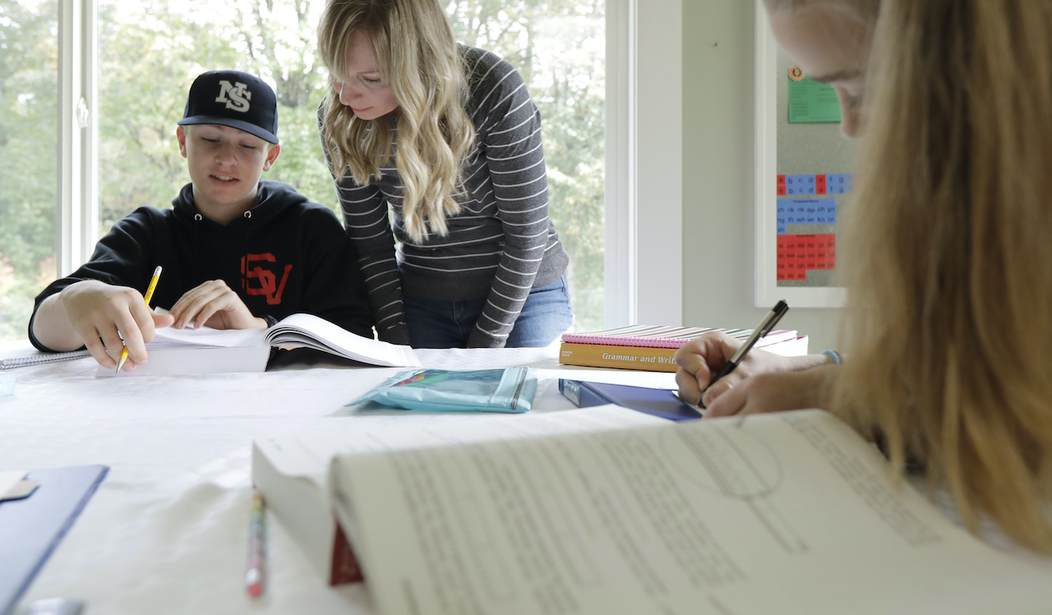Every homeschooling parent knows about the “S” word — socialization. We’ve all had conversations with concerned relatives who wonder if our kids are being properly socialized. Read any article about homeschooling in a mainstream media source and inevitably the comments section will fill up with concerns about it. Never mind that we also talk about socializing puppies and that children who are caught socializing too much in school are reprimanded. People who don’t know anything about the homeschooling family down the street have “grave concerns” about whether those children are being properly socialized.
By “socialization,” many of these folks are really wondering if the kids will grow up to be weird or odd somehow. There are two basic assumptions—false assumptions—that people make when considering homeschoolers and the threat of “weird” personalities that arise because of a lack of socialization.
The first assumption is that anyone can adequately define “weird.”
If you were the homecoming queen named Miss Congeniality in your high school yearbook and went on to have a daughter who followed in your footsteps, you will have a very specific image in your mind of how a “normal” high school kid should look and act. Likewise, if you were the gym rat who majored in football.
On the other hand, if you were the shy, shaggy-haired boy who eschewed grooming and spent your high school lunch hour playing Dungeons and Dragons, your categories for “weird” and “normal” will skew a little differently than Joe Football’s. Beauty and "normal" are in the eye of the beholder. And contrary to the persistent Duggar-style stereotype, homeschoolers come in all shapes, sizes, and personality types. There are the jocks, the hipsters, the computer geeks, and the goth kids (although you will find some who are just like the Duggars).
The second assumption is that homeschooling causes children to become odd or socially awkward. Most critics who make that assumption or hurl the accusation don’t know (or ignore) the growing body of research to the contrary demonstrating that homeschooled children grow up to be normal, well-adjusted adults. Far from being socially isolated, the average homeschooled child participates in 5.2 activities outside the home every week.
While there are plenty of homeschooled kids who seem odd by homecoming-queen standards, there are plenty of kids in public school who also fit that category. On what shall we blame their awkward behavior? How do we explain why so many students don’t fit in at school and struggle at the margins of social acceptance? Bullies pounce on every aberration of what is considered acceptable behavior by the “in” crowd, and "weird" kids who don’t conform are kicked to the curb. Many families whose children are victims of school bullying actually turn to homeschooling to protect their kids from the violence and emotional harm they experienced in school.
Ultimately, “weird” people exist in every walk of life, regardless of the child’s educational background. My personal (admittedly anecdotal) theory is that children generally turn out to be a lot like their parents, regardless of whether or not they attended school. The offspring of geeky parents who revel in marathon sci-fi movie weekends and go all out for Renaissance fairs — complete with custom-made costumes — produce children with similar interests. Public schools probably cannot cure children from that ingrained geek culture at home. Parents who live for sports and start their kids in soccer and t-ball at age four, spending their evenings and weekends shuttling the kiddos from one practice to another, are generally (not always, but generally) going to have children who enjoy and participate in sports as they get older, regardless of their schooling choices.
So, will your kids grow up to be weird if you homeschool them? Yes, definitely. Right now, this very minute, someone thinks you are weird because you are not like them. And someone will think your children are weird for the same reason. But the way you choose to educate them will not be the cause.










Join the conversation as a VIP Member